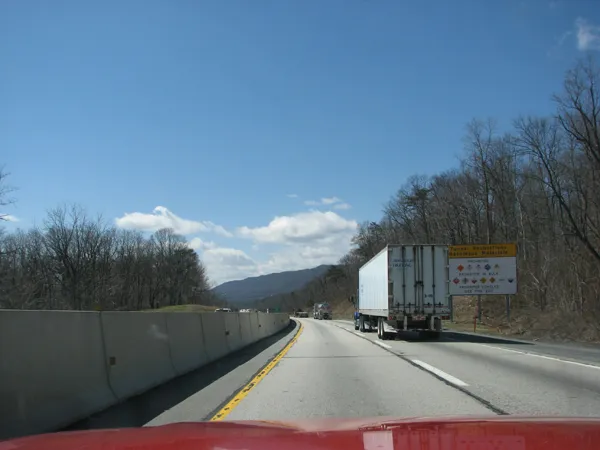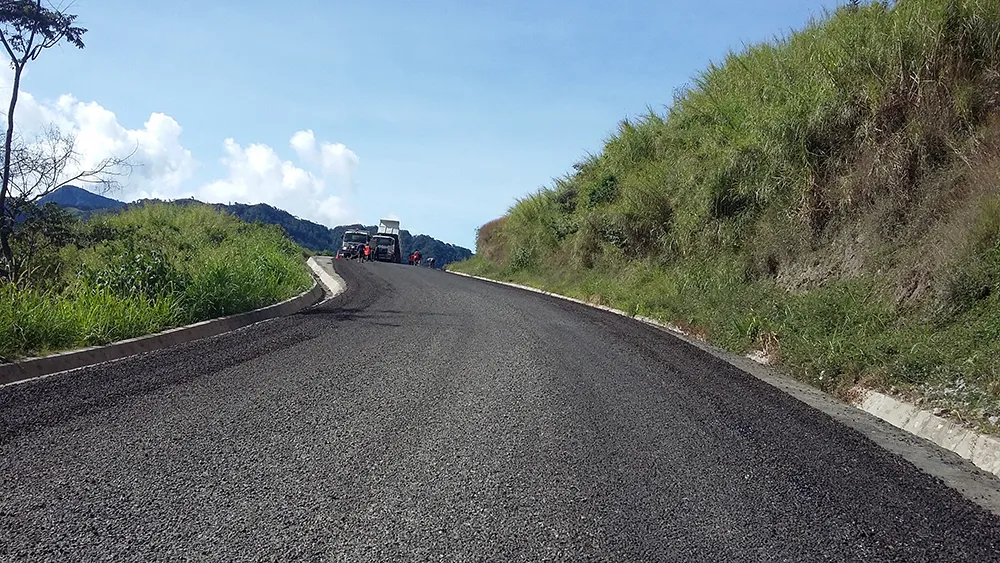Leading the change, IRF organises its 2nd Conference on Roads & Environment in Geneva, Switzerland on 10-11 November 2008 An opinion poll in the UK at the end of June showed that more people think their government should first try to tackle environmental issues before trying to tackle global economic problems. Two-thirds of people were even in favour of green taxes, either now or when economic conditions improve. The environment remains high on the agenda in most countries, including in those where public o
August 2, 2012
Read time: 5 mins

RSS
Two-thirds of people were even in favour of green taxes, either now or when economic conditions improve. The environment remains high on the agenda in most countries, including in those where public or political acknowledgement of these issues is relatively recent.
When thinking of roads and their effect on the environment, people naturally focus their attention on the users. They tend to ignore the providers, those stakeholders active in the road infrastructure sector who have the ability to make the real difference between roads that are mere strips of hot-laid tarmac and roads that are intelligent, safe and environmentally friendly, for today and tomorrow.
At its first International Conference on Roads & Environment, the International Road Federation made an inventory of positive developments in the performance of vehicles and road infrastructure. There is an over-riding need to reduce CO² emissions: members of the IRF must deliver roads which minimise energy consumption.
The road industry has the ability today to respond to the environmental challenge with sophisticated solutions, often more avant-garde than what the public and political bodies would expect. Contracts are too often awarded on a price base, leaving aside precious ecological advancement. Convinced that such advancements are not only good options, but an absolute must, the 2nd International Conference on Roads & Environment will demonstrate how to make roads greener, cleaner and healthier, for the sake of everyone.
The conference will focus on innovative materials to save energy and resources, on inspiring solutions for water management, on integrated approach to noise and air pollution and, last but not least, on Greenhouse Gas (GHG) emissions monitoring, accounting and offsetting.
Four steps to cleaner roads
Materials and Technology: The road industry has come a long way in the 100 years, since macadamised roads first began to challenge the ascendancy of rail transport. So far has it come, that it is challenging itself in its choice of materials and technology. The challenge started with the price for energy and fuel. The road industry has invested a lot of time and money into researching alternative material, recycled cold asphalt, reflective signs that do not need lighting and bio-degradable material. Such materials are available and tested and ready to be used.
Noise and Air Pollution: The easiest and most readily available approach to noise and air pollution is to cut the average speed of driving, everywhere. Various studies show the positive reductions in perceived decibels, reductions in NOx, other airborne pollutants, and reduction in accidents, that result from given speed reductions. But it is not that simple. Specifics of roads vary widely; there are differences in materials, predominant traffic types, tyre designs, proximity to private or commercial property, degree of elevation, number of lanes, and the human nature which is unwilling to adapt to reduced speed. Today we can achieve a balance in which both technology and policy have their place. There are noise barriers available which take pollutants from the atmosphere. There are optimal speeds for differing traffic densities and weather conditions. There are innovative, noise-absorbing pavements.
Water Management: no road construction has zero impact on the environment in which it is placed. Construction materials themselves will have a response to the underlying hydrological status which is different from the soils they have replaced. Construction impedes natural water flow with sometimes heavy consequences. Sensitive environment may be at risk from polluting highways' run-offs. Road designers must assess the potential impact of each construction project. Road authorities are faced with decisions such as using de-icing agents, choice of permeability of materials, drains and filters. Mitigation measures must address each risk in a technically and economically satisfactory manner. Water management is a major challenge in a world where the perverse effects of climate change make the weather more erratic.
Emissions: One of the more useful environmental slogans is: 'Reduce What You Can, Offset What You Can't.' The 'what' is GHG emissions. If the world is moving to a 'cap and trade' regime for carbon emissions, how can emissions be measured? They can be estimated at the macro-level, or they can be established with much greater accuracy at the micro-level. So individual plant operators and road contractors can allow the effects of their activity to be 'guesstimated' by a third party, and wait passively for the consequences. Or do the calculation themselves, announce results that are strictly verifiable, provide a model to reduce emissions, and propose effective off-setting measures? The IRF GHG calculator is tailor-made to do that. It is a flexible tool for the assessment of road projects, of its environmental performance, enabling to report and provide information for CO² compliance, taxation, or offsets.
These are the four steps in the right direction, leading the road industry towards more environmentally responsible road construction. The delegates of the 2nd International Roads & Environment Conference will discover alternatives to traditional material, and gain knowledge on research and test results.
IRF has made this conference climate neutral. The total emissions caused through staging the event will be offset through myclimate. IRF is walking the talk.
Leading the change,
Two-thirds of people were even in favour of green taxes, either now or when economic conditions improve. The environment remains high on the agenda in most countries, including in those where public or political acknowledgement of these issues is relatively recent.
When thinking of roads and their effect on the environment, people naturally focus their attention on the users. They tend to ignore the providers, those stakeholders active in the road infrastructure sector who have the ability to make the real difference between roads that are mere strips of hot-laid tarmac and roads that are intelligent, safe and environmentally friendly, for today and tomorrow.
At its first International Conference on Roads & Environment, the International Road Federation made an inventory of positive developments in the performance of vehicles and road infrastructure. There is an over-riding need to reduce CO² emissions: members of the IRF must deliver roads which minimise energy consumption.
The road industry has the ability today to respond to the environmental challenge with sophisticated solutions, often more avant-garde than what the public and political bodies would expect. Contracts are too often awarded on a price base, leaving aside precious ecological advancement. Convinced that such advancements are not only good options, but an absolute must, the 2nd International Conference on Roads & Environment will demonstrate how to make roads greener, cleaner and healthier, for the sake of everyone.
The conference will focus on innovative materials to save energy and resources, on inspiring solutions for water management, on integrated approach to noise and air pollution and, last but not least, on Greenhouse Gas (GHG) emissions monitoring, accounting and offsetting.
Four steps to cleaner roads
Materials and Technology: The road industry has come a long way in the 100 years, since macadamised roads first began to challenge the ascendancy of rail transport. So far has it come, that it is challenging itself in its choice of materials and technology. The challenge started with the price for energy and fuel. The road industry has invested a lot of time and money into researching alternative material, recycled cold asphalt, reflective signs that do not need lighting and bio-degradable material. Such materials are available and tested and ready to be used.
Noise and Air Pollution: The easiest and most readily available approach to noise and air pollution is to cut the average speed of driving, everywhere. Various studies show the positive reductions in perceived decibels, reductions in NOx, other airborne pollutants, and reduction in accidents, that result from given speed reductions. But it is not that simple. Specifics of roads vary widely; there are differences in materials, predominant traffic types, tyre designs, proximity to private or commercial property, degree of elevation, number of lanes, and the human nature which is unwilling to adapt to reduced speed. Today we can achieve a balance in which both technology and policy have their place. There are noise barriers available which take pollutants from the atmosphere. There are optimal speeds for differing traffic densities and weather conditions. There are innovative, noise-absorbing pavements.
Water Management: no road construction has zero impact on the environment in which it is placed. Construction materials themselves will have a response to the underlying hydrological status which is different from the soils they have replaced. Construction impedes natural water flow with sometimes heavy consequences. Sensitive environment may be at risk from polluting highways' run-offs. Road designers must assess the potential impact of each construction project. Road authorities are faced with decisions such as using de-icing agents, choice of permeability of materials, drains and filters. Mitigation measures must address each risk in a technically and economically satisfactory manner. Water management is a major challenge in a world where the perverse effects of climate change make the weather more erratic.
Emissions: One of the more useful environmental slogans is: 'Reduce What You Can, Offset What You Can't.' The 'what' is GHG emissions. If the world is moving to a 'cap and trade' regime for carbon emissions, how can emissions be measured? They can be estimated at the macro-level, or they can be established with much greater accuracy at the micro-level. So individual plant operators and road contractors can allow the effects of their activity to be 'guesstimated' by a third party, and wait passively for the consequences. Or do the calculation themselves, announce results that are strictly verifiable, provide a model to reduce emissions, and propose effective off-setting measures? The IRF GHG calculator is tailor-made to do that. It is a flexible tool for the assessment of road projects, of its environmental performance, enabling to report and provide information for CO² compliance, taxation, or offsets.
These are the four steps in the right direction, leading the road industry towards more environmentally responsible road construction. The delegates of the 2nd International Roads & Environment Conference will discover alternatives to traditional material, and gain knowledge on research and test results.
IRF has made this conference climate neutral. The total emissions caused through staging the event will be offset through myclimate. IRF is walking the talk.








